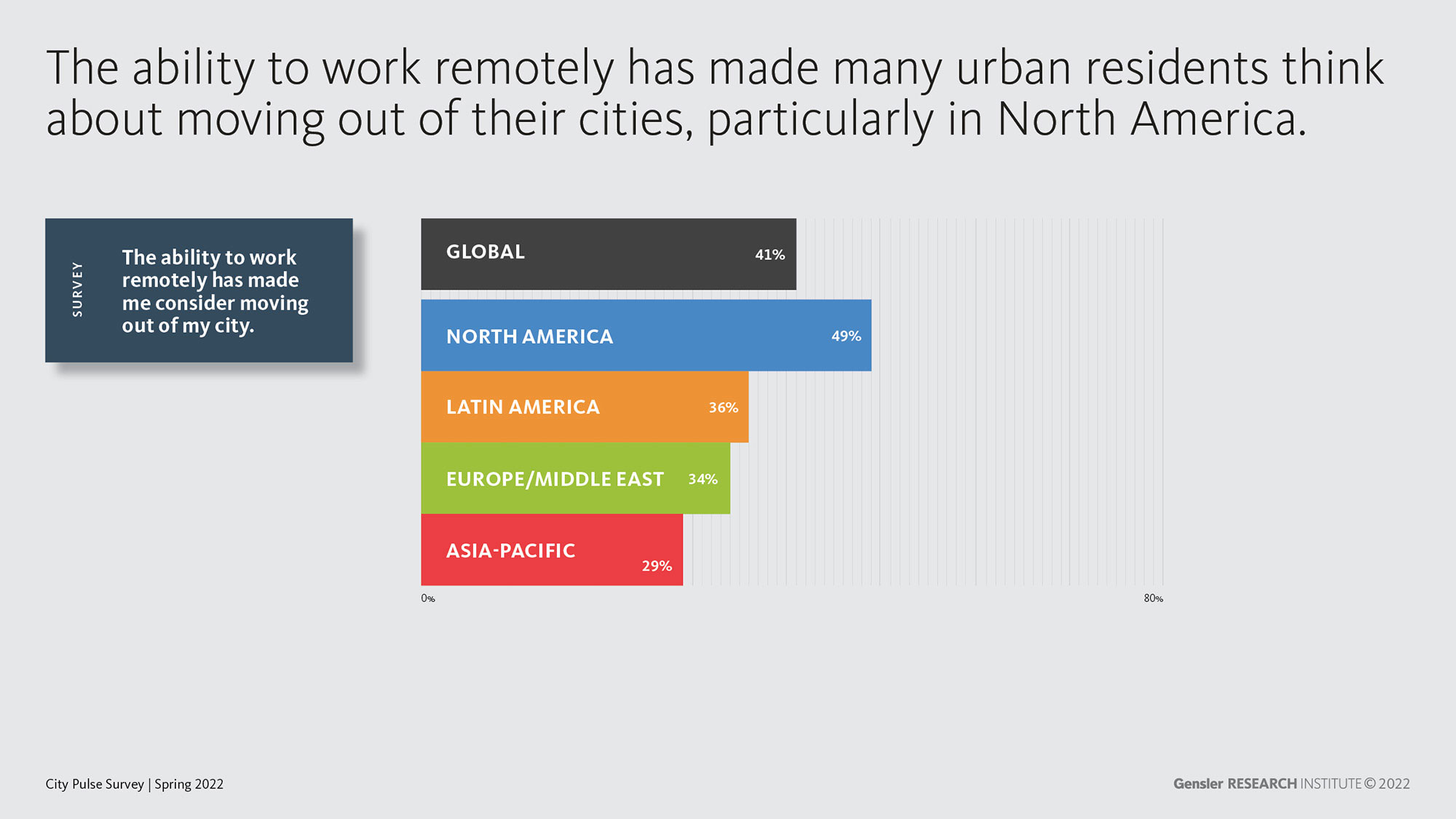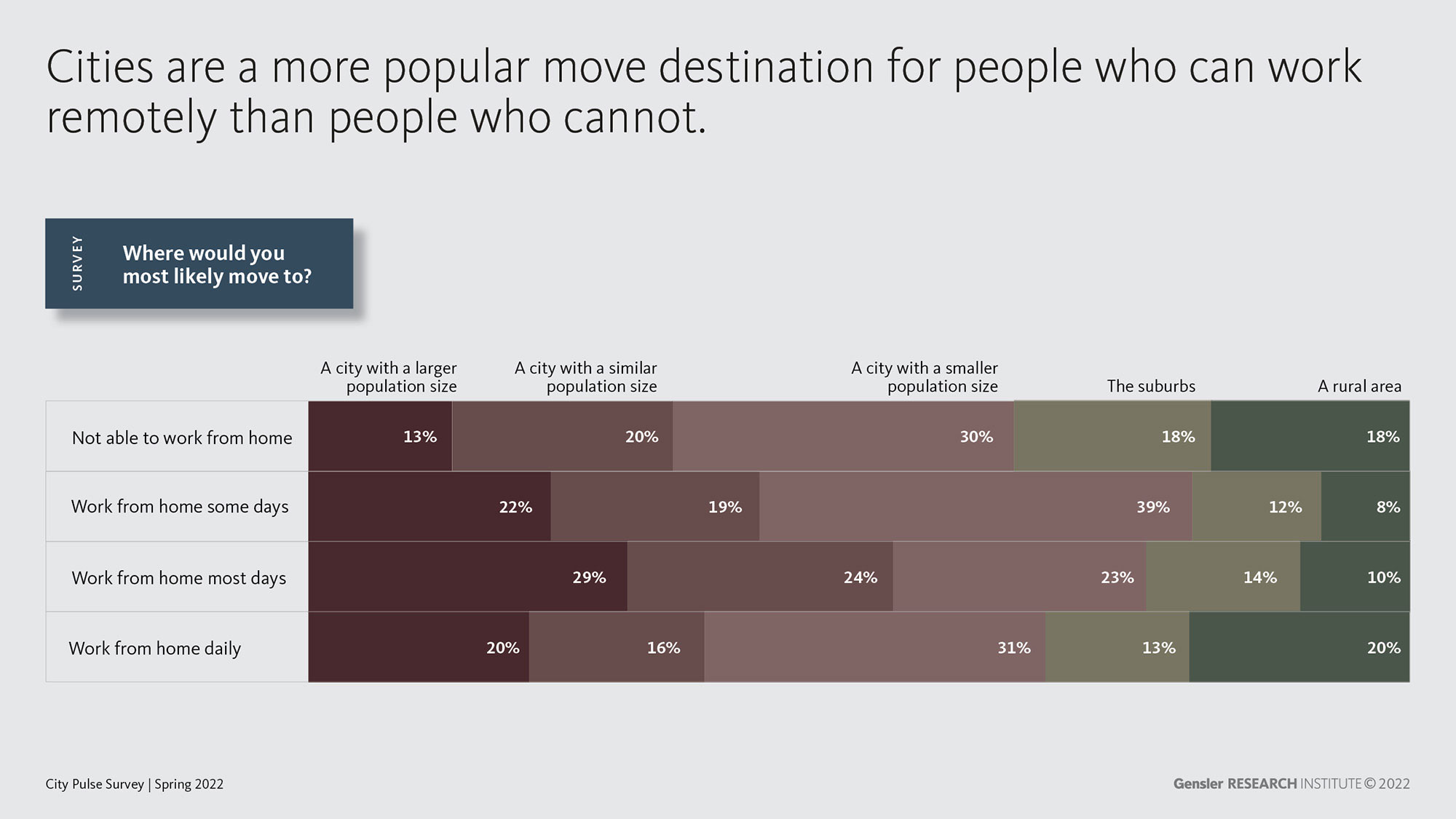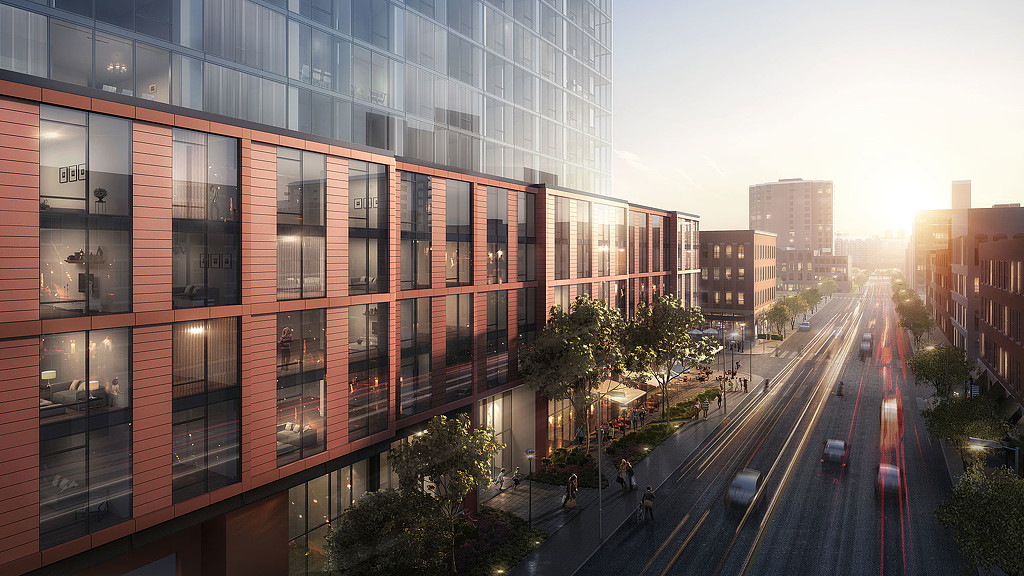What Gensler’s 2022 City Pulse Survey Says About Hybrid Work and Urban Life
June 09, 2022 | By Sofia Song, Stella Donovan
Throughout the pandemic, the adoption of hybrid and/or flexible work policies has posed critical questions for the future of cities. Will workers, the majority of whom are currently untethered from their offices at least part of the week, permanently leave metropolitan areas? And could this possible shift cause our downtowns to turn into ghost towns? Findings from Gensler’s Spring 2022 City Pulse Survey, a global survey of 12,500 urban residents across 25 cities in four global regions, show that people with remote work arrangements still tend to prefer city living — and that supporting flexible and hybrid work strategies at the city level is an opportunity to catalyze the rebirth of our downtowns and neighborhoods.
Remote work is causing some city dwellers to consider moving out of their cities.

Globally, 41% of respondents say that the ability to work remotely has made them want to move out of their current city. The nine cities with the highest percentage of remote workers who want to move are all located in the United States. A striking 71% of remote working respondents in Seattle, 65% in Washington, D.C., and 50% in San Francisco agree that they’ve considered moving. When looking at the data by generation, nearly half of Gen Z and Millennial respondents say they’ve considered moving as a result of remote work, compared to just 37% of Gen X respondents and 28% of Baby Boomers.
However, remote workers aren’t fleeing cities — they’re trying to find the right one.

We asked people with a range of remote work options, from daily to not-at-all, where they would most likely move. A majority (80%) of people who work from home some days (1-2) a week, 76% of people work from home most days (3-4) a week, and 67% of people who work from daily want to move t
